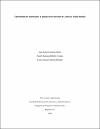Oportunidad de negocio para la gulupa en los mercados de Austria y Arabia Saudita
Resumen
La gulupa es un fruto exótico colombiano el cual se caracteriza por su forma y sabor único, actualmente tiene una gran proyección para la exportación ya que ha llegado a mercados como Países Bajos y Alemania, en los cuales ha sido acogido exitosamente. Por esta razón se propone investigar otros posibles mercados como Austria y Arabia Saudita que son países importadores a gran escala de este tipo de frutos. Por consiguiente, el objetivo general de esta investigación es identificar mercados potenciales para la exportación de gulupa, analizando cada país en específico para estudiar una futura aceptación y adaptación de este fruto. Se implementarán cuatro de las siete etapas del modelo Way Station, el cual plantea como debe desarrollarse un proceso internacionalización. La metodología corresponde a un enfoque cualitativo porque no se transformarán datos y descriptivo ya que se centrará en estudiar el comportamiento del sector de frutos exóticos y la gulupa para futuras exportaciones. Entre los principales resultados se encuentra que ambos países no son productores de este tipo de frutos, pero cuentan con valores en importaciones altos, cabe resaltar que Colombia tiene un tratado de libre comercio vigente con la Unión Europea y esto hace que las exportaciones hacia Austria sean menos complejas, caso contrario al de Arabia Saudita.
Abstract
Gulupa is an exotic Colombian fruit, which is characterized by its unique shape and flavor, currently has a great projection for export since it has reached markets such as the Netherlands and Germany, in which it has been successfully received. For this reason, other possible markets such as Austria and Saudi Arabia that are large-scale importing countries of this type of fruit were investigated. Therefore, the general objective of this research is to identify potential markets for the export of gulupa, analyzing each specific country to study a future adaptation of this fruit in the countries to be studied. Four of the seven stages of the Way Station model will be implemented, which deals with the internationalization process of a product and this is developed in seven stages. Regarding the research methodology, a qualitative approach will be used because data and descriptive data will not be transformed since it will focus on studying the behavior of the exotic fruit sector and gulupa for future
exports. Among the main results is that both countries are not producers of this type of fruit, but have high import values, it should be noted that Colombia has a free trade agreement in force with the European Union and this makes exports to Austria are less complex, contrary to Saudi Arabia.
Palabras clave
Keywords
Collections
 This work is licensed under a Creative Commons Reconocimiento-NoComercial 4.0.
This work is licensed under a Creative Commons Reconocimiento-NoComercial 4.0.

